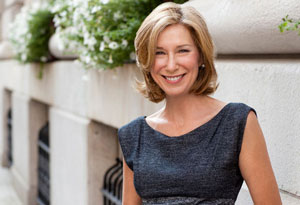The Midlife Meltdown: How to Deal With Empty-Nest Syndrome

Photo: Robert Trachtenberg
She was feeling raw, out of sorts, intensely emotional. And then Valerie Monroe figured out that her out-of-whack attacks always led to a great leap forward.
"If I weren't at a birthday party, I would've fallen to my knees and wept with gratitude." That's how, years ago, I began a letter to Louise Bates Ames, then the director of the Gesell Institute of Human Development, a research organization dealing with children's developmental growth, in New Haven, Connecticut, and the coauthor of a slim volume called Your Six-Year-Old. I had opened the book as my son had run off to find his friends, and found described in it nearly every one of the difficult and, to me, unfamiliar characteristics of his formerly easygoing personality. In her series of books—Your One-Year-Old, etc.—Ames describes what researchers have found after decades of studying children: that every couple of years, kids move through periods of equilibrium and disequilibrium as various aspects of their development alternately synchronize and conflict. During periods of disequilibrium, their behavior tends to be stormy as they cope with frustration and inner turbulence. The most notorious of these times, when a child might know what she wants to do but is physically unable (or forbidden) to accomplish it, is the terrible twos. "I'm in my terrible 52s," a friend remarked recently, and I knew what she meant. For the first time in a long time, I was feeling off-kilter, vulnerable, unbalanced. Was it hormonal? Was it empty-nest syndrome? I mourned the days when I was raising a young child and relied on the constancy of his needs to give me a deep sense of purpose. I fantasized about having another baby, but quickly (with a nudge from my husband) recognized the folly of that idea. After a long stretch of feeling stable, productive, and fulfilled—as if I were playing the lead in the story of my life (or at least happily scripting the plot)—I suddenly felt like a bit player, marginalized, with no lines worth repeating. Plus, there was a new sense of urgency. Not to overextend the metaphor, but it was the beginning of the third act and the houselights were going down.
Then a weird thing happened: I had a tantrum. Or more of a meltdown. The woman who did a mediocre job of cleaning my house once every couple of weeks called to tell me that she was quitting. I hung up the phone and cried. For hours. I felt like the two-year-old who is inconsolable over a dropped Cheerio or a missing toy. And when I came to, I wondered whether, like the two-year-old, I was moving through a period of disequilibrium. Might such periods continue throughout adulthood? "Yes, of course," says Jacqueline Haines, director of training and clinical services at the Gesell Institute. As adults, Haines says, it appears we move in and out of equilibrium in five-to-seven-year configurations as we experience frustrations and adapt to them. The psychoanalyst Erik Erikson, similarly, suggests that throughout our lives we confront a series of crises that require adaptation, and that struggling through each crisis allows the opportunity for a basic strength to emerge. In mid-adulthood, for example, we face a conflict between feeling the need to contribute to society and feeling purposeless, as if there's no more that we can accomplish. Here's the beauty part: All the crises are related in some way, so that as we work through one, we're simultaneously resolving past issues and laying the groundwork for the resolution of future ones.
Much of my sense of feeling unbalanced and adrift was a result of not having the anchor of active mothering day in and day out. Now I've grieved over that loss and am slowly settling into something else. A few months ago, when my son returned from college for his holiday break, I was struck by how independent an adult he had become and, more profoundly, by how much I liked the adult he had become. The result of my 19-year endeavor had become delightfully clear. And then one morning not long after, as I stood on a subway platform on my way to work, I realized that I was having a recurring fantasy. In it I am a grandmother—a young and vital one, to be sure—playing with my infant grandchild. I see my grown son in the background, looking on with pride. I feel happy, optimistic. I think I am doing what psychologist Robert Havighurst says all humans do: I think I am learning my way through life.
Having a Midlife Moment (Or Even a Full-On Crisis)?



